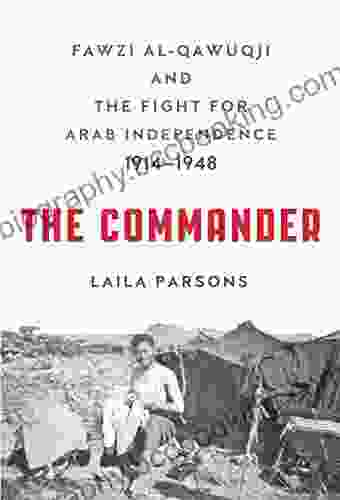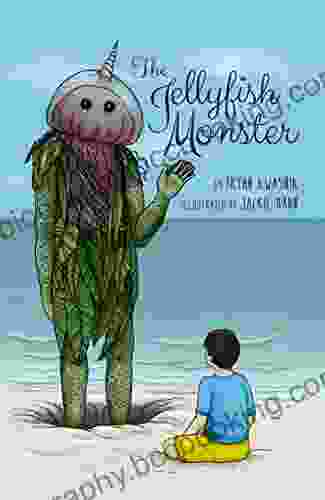Fawzi Al Qawuqji and the Unquenchable Flame of Arab Independence, 1914-1948

The annals of history are replete with tales of intrepid warriors who dedicated their lives to noble causes. Among them stands Fawzi Al Qawuqji, a legendary figure whose unwavering determination and unwavering spirit played a pivotal role in the struggle for Arab independence during the tumultuous decades of the early 20th century.
Born in 1885 into a prominent family in Saida, Lebanon, Qawuqji's life took a profound turn with the outbreak of World War I. With unwavering patriotism, he joined the Ottoman army and fought valiantly against the Allied forces. His bravery and leadership skills earned him rapid promotion, culminating in the command of a regiment of Arab cavalry.
4.3 out of 5
| Language | : | English |
| File size | : | 7510 KB |
| Text-to-Speech | : | Enabled |
| Screen Reader | : | Supported |
| Enhanced typesetting | : | Enabled |
| Print length | : | 308 pages |
However, the war also ignited within Qawuqji a deep sense of disillusionment with the Ottoman Empire. Witnessing the declining power and betrayal of the Arab cause by its erstwhile ally, he became convinced that the only path to genuine independence lay in self-determination.
In the aftermath of the war, Qawuqji emerged as a leading figure in the nascent Arab nationalist movement. He joined the Syrian Revolution of 1925, fighting against French colonial forces. His exploits during the battle of Maysalun became legendary, as he led a cavalry charge that routed the French army and briefly established an independent Syrian state.
Unbowed by the eventual defeat of the revolution, Qawuqji continued to advocate for Arab unity and independence. He established the Arab Liberation Army in 1936, a formidable force that played a pivotal role in the 1936-1939 Arab Revolt in Palestine. His charismatic leadership and military prowess inspired thousands of volunteers to join the fight against British rule.
The outbreak of World War II in 1939 presented Qawuqji with a new opportunity to further the cause of Arab independence. He allied with Nazi Germany, believing that it could help break the yoke of British imperialism and establish an independent Arab state. While his motives have been the subject of much debate, Qawuqji's ultimate goal remained the liberation of the Arab people.
After the war, Qawuqji returned to Palestine and resumed his fight for an independent Arab state. He led the Arab Liberation Army in the 1948 Arab-Israeli War, distinguishing himself in battles such as Mishmar HaEmek and Latrun. Despite fierce fighting, the war ended with the defeat of the Arab forces and the establishment of the State of Israel.
In the aftermath of the war, Qawuqji went into exile in Syria, where he continued to advocate for Arab unity and the liberation of Palestine. He played a leading role in the establishment of the Palestine Liberation Organization (PLO) in 1964 and remained an influential figure in the Palestinian movement until his death in 1977.
Fawzi Al Qawuqji's unwavering determination and indomitable spirit left an enduring legacy on the struggle for Arab independence. His life was a testament to the power of conviction, the indomitable spirit of the human soul, and the enduring legacy of those who fight for a just cause.
For those seeking a deeper understanding of Qawuqji's extraordinary life and his immeasurable contributions to the Arab world, the book "Fawzi Al Qawuqji and the Fight for Arab Independence 1914-1948" is an invaluable resource. Meticulously researched and eloquently written, this comprehensive biography provides an in-depth exploration of Qawuqji's motivations, military strategies, and the wider context of the Arab independence movement.
With captivating prose and vivid descriptions, the book transports readers back to the tumultuous years of the early 20th century, allowing them to experience alongside Qawuqji the challenges, triumphs, and setbacks of his remarkable journey. The book is a testament to Qawuqji's indomitable spirit, his unwavering commitment to Arab unity and independence, and his enduring legacy as a legend in the annals of Arab history.
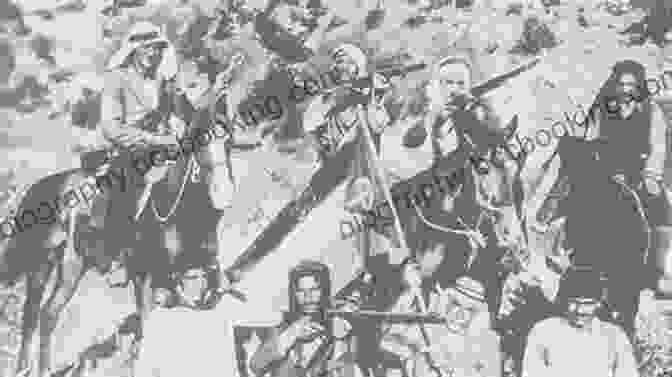
4.3 out of 5
| Language | : | English |
| File size | : | 7510 KB |
| Text-to-Speech | : | Enabled |
| Screen Reader | : | Supported |
| Enhanced typesetting | : | Enabled |
| Print length | : | 308 pages |
Do you want to contribute by writing guest posts on this blog?
Please contact us and send us a resume of previous articles that you have written.
 Book
Book Novel
Novel Page
Page Chapter
Chapter Text
Text Story
Story Genre
Genre Reader
Reader Library
Library Paperback
Paperback E-book
E-book Magazine
Magazine Newspaper
Newspaper Paragraph
Paragraph Sentence
Sentence Bookmark
Bookmark Shelf
Shelf Glossary
Glossary Bibliography
Bibliography Foreword
Foreword Preface
Preface Synopsis
Synopsis Annotation
Annotation Footnote
Footnote Manuscript
Manuscript Scroll
Scroll Codex
Codex Tome
Tome Bestseller
Bestseller Classics
Classics Library card
Library card Narrative
Narrative Biography
Biography Autobiography
Autobiography Memoir
Memoir Reference
Reference Encyclopedia
Encyclopedia Bruce Hyde
Bruce Hyde Brian Lockman
Brian Lockman Carrie Finison
Carrie Finison Bria Burton
Bria Burton Camille Andros
Camille Andros C M Gray
C M Gray C Todd Lombardo
C Todd Lombardo C J Hayden
C J Hayden Catherine Clinton
Catherine Clinton Brian Keene
Brian Keene C Osvaldo Gomez
C Osvaldo Gomez Brian Evans
Brian Evans Bridget Quinn
Bridget Quinn Catherine D Hughes
Catherine D Hughes Brian Lawley
Brian Lawley Bret Contreras
Bret Contreras Carl B Tolman
Carl B Tolman C Hagerman
C Hagerman Bruce Dowbiggin
Bruce Dowbiggin Bruce Usher
Bruce Usher
Light bulbAdvertise smarter! Our strategic ad space ensures maximum exposure. Reserve your spot today!
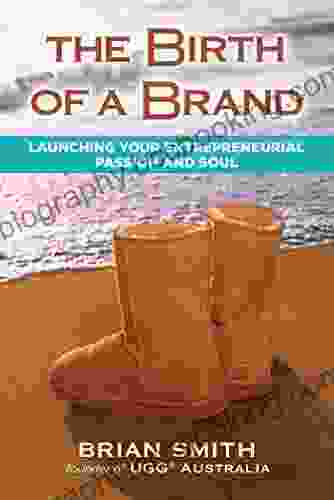
 Devon MitchellLaunching Your Entrepreneurial Passion and Soul: A Journey of Discovery,...
Devon MitchellLaunching Your Entrepreneurial Passion and Soul: A Journey of Discovery,... Richard AdamsFollow ·15.7k
Richard AdamsFollow ·15.7k Ernest HemingwayFollow ·5.3k
Ernest HemingwayFollow ·5.3k Bob CooperFollow ·15.1k
Bob CooperFollow ·15.1k Edison MitchellFollow ·16.9k
Edison MitchellFollow ·16.9k Darnell MitchellFollow ·11.6k
Darnell MitchellFollow ·11.6k Edgar CoxFollow ·13.8k
Edgar CoxFollow ·13.8k Alec HayesFollow ·5.5k
Alec HayesFollow ·5.5k William ShakespeareFollow ·6.7k
William ShakespeareFollow ·6.7k

 Andy Hayes
Andy HayesUnveil the Rich Tapestry of Rural Life: Immerse Yourself...
Step into the enchanting pages of "Still...

 David Mitchell
David MitchellUnlocking the Depths of Cybersecurity: An In-Depth Look...
In the ever-evolving landscape of...
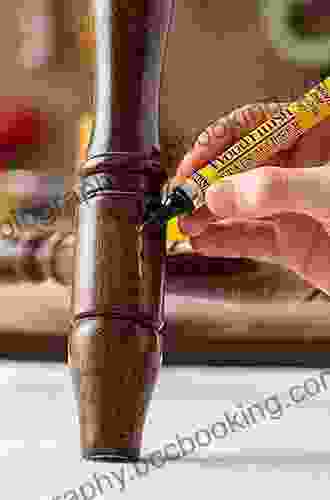
 Seth Hayes
Seth HayesUnlock the Secrets of Watercolor Landscapes: 37 Tools for...
Embark on a...

 Tyler Nelson
Tyler Nelson15 Insightful Answers to Questions on Uterine Fibroid
Uterine fibroids...
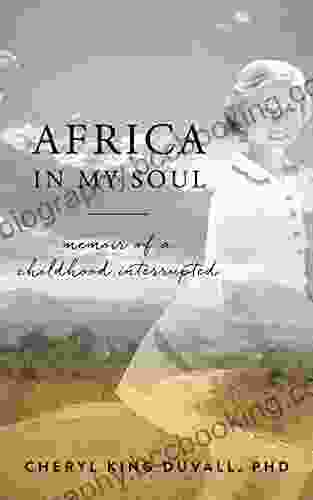
 Evan Hayes
Evan HayesAfrica In My Soul: A Literary Odyssey That Captivates the...
In a world where diverse cultures...
4.3 out of 5
| Language | : | English |
| File size | : | 7510 KB |
| Text-to-Speech | : | Enabled |
| Screen Reader | : | Supported |
| Enhanced typesetting | : | Enabled |
| Print length | : | 308 pages |


